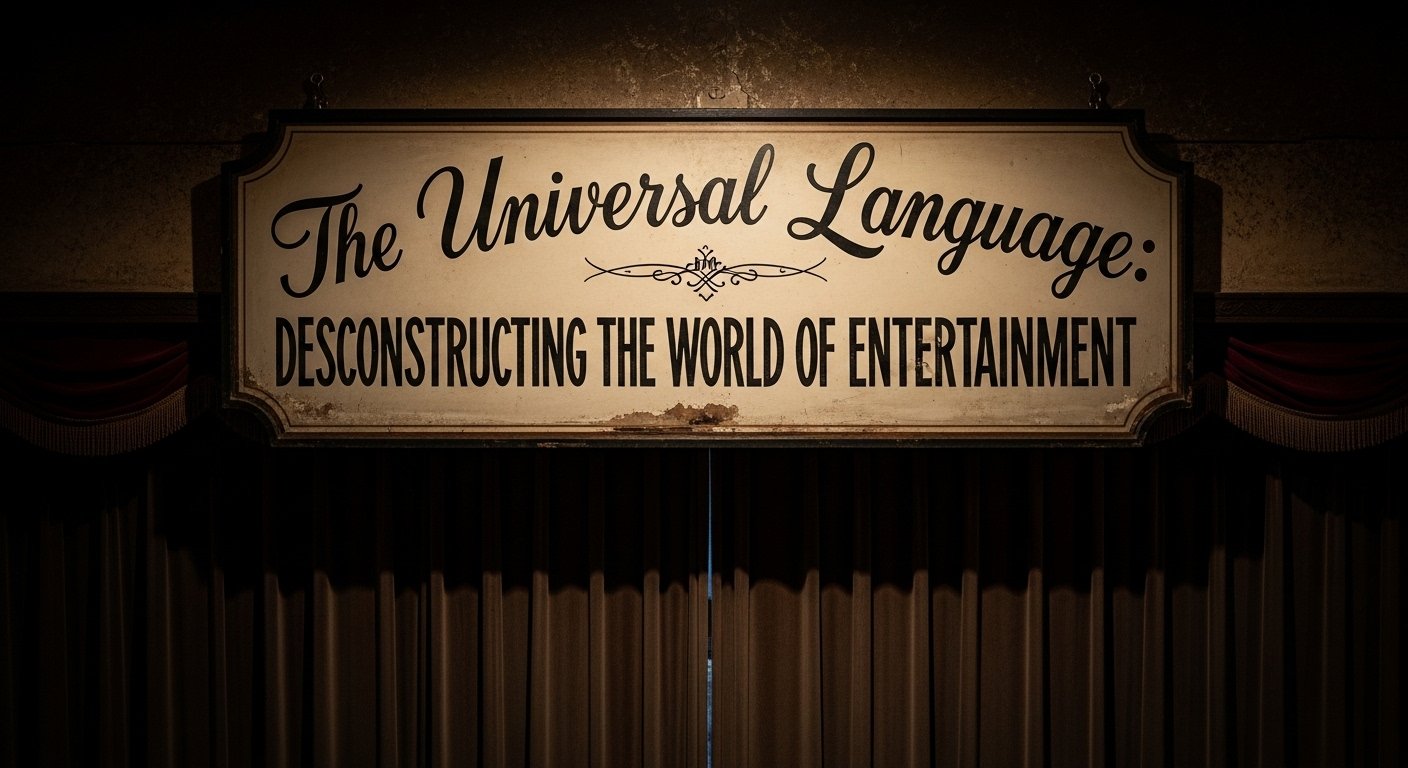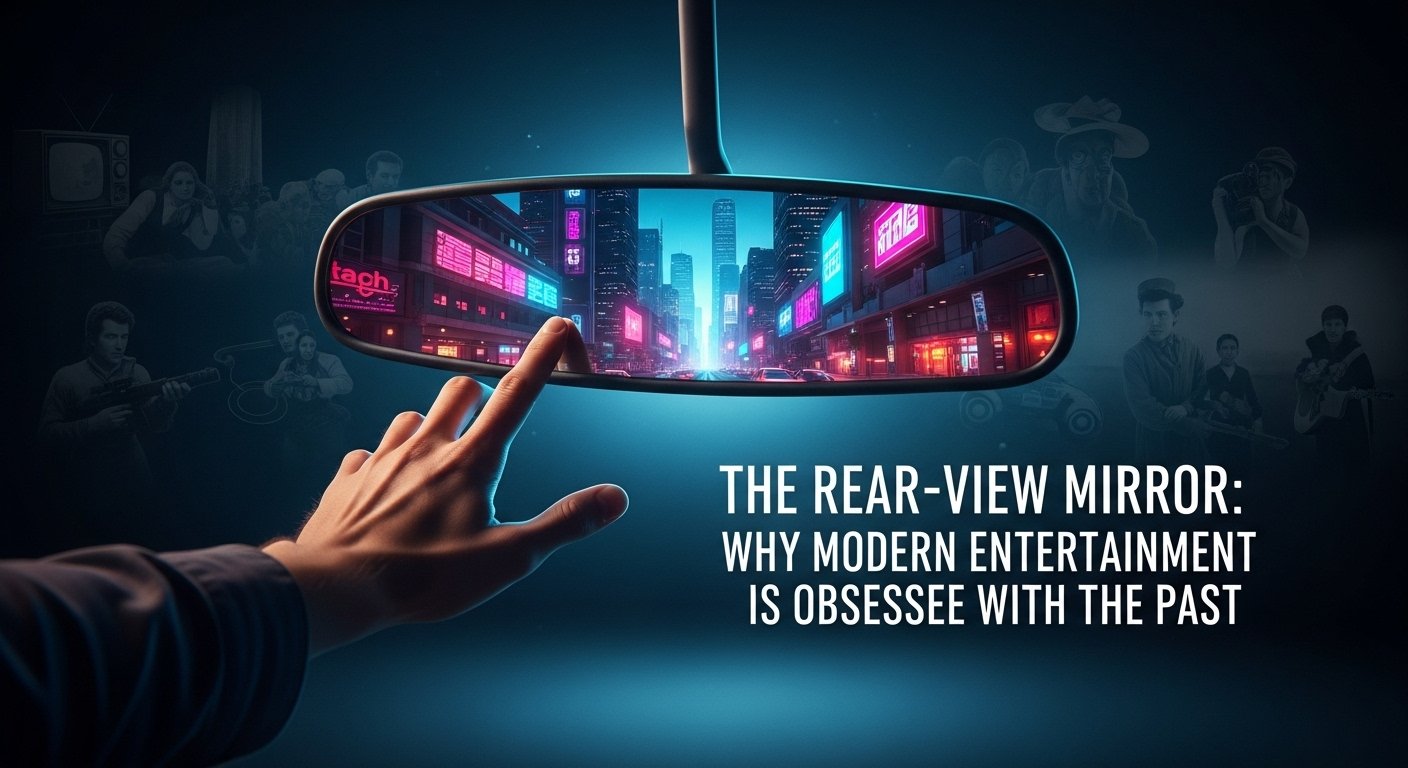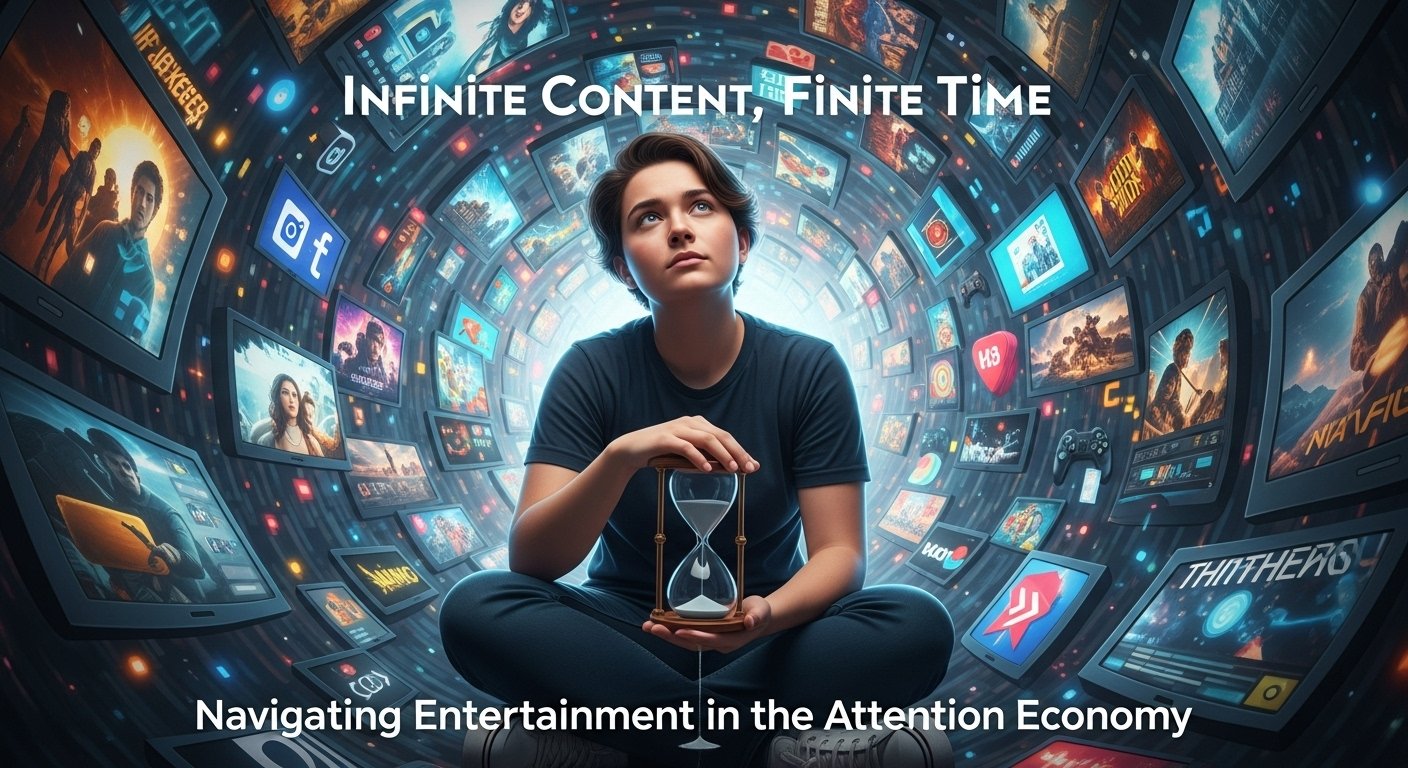In every corner of the globe, from the bustling metropolises to the quietest rural villages, humanity shares a profound and unifying desire: the need to be entertained. It is a force that transcends culture, language, and time. It is the ancient storyteller’s voice echoing in the glow of a modern smartphone screen, the shared roar of a crowd in a cricket stadium, and the solitary tear shed for a character in a television drama. Entertainment, far from being a mere frivolity or a simple pastime, is a fundamental human need.1 It serves as society’s mirror and its mold, a psychological sanctuary, a colossal global industry, and a canvas for our most elaborate dreams and pressing conversations.
This exploration delves into the multifaceted universe of entertainment. We will trace its historical roots, examine its diverse contemporary forms, understand its deep psychological pull, and assess its powerful role in shaping culture, all while looking ahead to a future where technology is poised to redefine the very nature of play and narrative.
A Tapestry Woven Through Time
The origins of entertainment are inseparable from the dawn of human community itself. Long before written history, our ancestors gathered to the sound of rhythmic drumming and the flickering firelight, sharing stories of the hunt, the gods, and the cosmos. These were not just tales; they were the first performances, acts that forged social bonds, transmitted cultural knowledge, and provided a cathartic release.
As civilizations blossomed, so did the formalization of entertainment. In ancient Greece, the amphitheater became a civic space for exploring complex human emotions through tragedy and comedy, a process Aristotle famously defined as catharsis.2 In the Indian subcontinent, classical traditions of dance like Bharatanatyam and epic recitations of the Mahabharata combined spirituality, storytelling, and performance into sublime art forms.3 The courts of the Mughal Empire were renowned for their patronage of music, poetry (mushairas), and the soul-stirring Sufi devotional music of Qawwali—a tradition that continues to captivate audiences today.4
A revolutionary shift occurred with the advent of reproducible media. The printing press democratized literature, but it was the 20th century’s inventions—the cinema and the radio—that created true mass entertainment. Suddenly, a story or a song was no longer a singular event. It could be broadcast across nations and preserved for eternity, setting the stage for the global media landscape we inhabit today.
The Modern Spectrum of Engagement
In 2025, entertainment exists in a dazzling, ever-expanding ecosystem, catering to every conceivable taste and context.
Narrative and Performance: This is the heartland of storytelling. Film, from Hollywood blockbusters to the vibrant cinemas of Bollywood and the resurgent Pakistani film industry (“Lollywood”), continues to be a dominant force. Television, however, has undergone a dramatic evolution. The rise of streaming platforms has ushered in a new “golden age,” with serialized dramas from around the world finding global audiences. Pakistani television dramas, in particular, have garnered international acclaim for their nuanced explorations of family dynamics, social issues, and intricate relationships, becoming a significant cultural export.5
Auditory Worlds: Music remains the most direct and primal form of entertainment. It is the personal soundtrack to our lives streamed through earbuds, and it is the collective ecstasy of a live concert. Groundbreaking platforms like Pakistan’s Coke Studio have gained global recognition by masterfully blending traditional folk music and classical instruments with contemporary genres, creating a sound that is both deeply rooted and universally appealing.6 The podcasting boom has revitalized audio storytelling, creating intimate connections between hosts and listeners on every topic imaginable.7
Interactive Realities: Perhaps the most profound shift in modern entertainment is the rise of interactivity. Video games are no longer a niche hobby; they are a central pillar of global culture.8 Unlike passive media, games grant the user agency—the power to influence the world and shape the story.9 From vast, explorable worlds to the high-stakes, split-second strategy of esports like Valorant or Dota 2, gaming offers deep immersion and a powerful sense of mastery.10 In many parts of the world, including Pakistan, the mobile phone is the primary gaming device, making interactive entertainment more accessible than ever before.11
The Psychology: Why We Are Hooked
Our deep-seated need for entertainment is rooted in fundamental psychological drivers.12
- Escapism and Stress Relief: Life is often demanding and stressful.13 Entertainment provides a vital psychological exit, a temporary reprieve where we can immerse ourselves in a different reality and forget our own anxieties.14
- Emotional Regulation: Entertainment offers a safe space to experience and process a wide range of emotions. We can feel the thrill of fear from a horror movie, the joy of a romantic comedy, or the sorrow of a tragic drama, all without real-world consequences. This vicarious emotional journey can be incredibly cathartic and validating.
- Cognitive Stimulation: Our brains enjoy being challenged. We derive satisfaction from solving the mystery in a detective novel, figuring out a complex puzzle in a video game, or following the intricate plot of a political thriller.
- Social Connection: Entertainment is a powerful social glue.15 It provides the shared cultural currency that fuels conversations. Discussing the latest episode of a hit show, celebrating a national cricket team’s victory, or attending a concert with friends builds and reinforces our communal bonds. Online fandoms have created global communities, uniting people through a shared passion.16
The Cultural Impact: Mirror and Mold
Entertainment holds a powerful, symbiotic relationship with society: it both reflects our values and actively shapes them.17 A film or TV show can introduce new ideas, challenge prejudices, and normalize different ways of life.18 The increasing demand for authentic representation on screen is a testament to entertainment’s role in fostering empathy and a more inclusive worldview.19
This influence extends to the global stage, where it becomes a form of “soft power.”20 The worldwide appeal of Hollywood has long been a vehicle for American culture.21 Similarly, the global fandom of Bollywood cinema and the rising international profile of Pakistani and Turkish dramas project a country’s cultural identity and influence far beyond its borders.22
However, this power is not without its complexities. The tension between global media giants and the preservation of local culture is a constant negotiation.23 Furthermore, the business of entertainment is a formidable economic engine. The profitability of a major blockbuster, for example, can be represented by a simplified formula:
P=(Bdom+Bintl+S)−(Cprod+Cmkt)
Where P is profit, Bdom is domestic box office revenue, Bintl is international box office, S represents ancillary revenue (streaming, merchandise), Cprod is the production cost, and Cmkt is the marketing cost. This economic reality often dictates the kinds of stories that get told, favoring globally marketable concepts over riskier, local narratives.
The Future: Immersive, Intelligent, and Individualized
The trajectory of entertainment is pointing towards a future that is more immersive, personalized, and decentralized than ever before.
By 2025, the role of Artificial Intelligence has moved from novelty to an integrated tool.24 AI algorithms are becoming increasingly sophisticated at personalizing content recommendations and are even beginning to assist in the creative process, from generating musical scores to drafting scripts.25
Immersive technologies like Virtual and Augmented Reality (VR/AR) promise to dissolve the screen between the audience and the story. Imagine not just watching a historical epic, but standing on the virtual battlefield, or having a beloved animated character appear in your living room through AR.
Finally, the Creator Economy continues to empower individuals.26 YouTubers, TikTokers, and Twitch streamers have built massive audiences and viable careers by creating content outside the traditional studio system.27 This trend democratizes storytelling, allowing unique and diverse voices from all over the world to find their community and share their vision.28
Conclusion
From the timeless poetry of a mushaira to the hyper-interactive world of a video game, entertainment is the universal language of humanity. It is the means by which we understand ourselves, connect with each other, and imagine our future. It is not a luxury, but a vital part of a healthy, vibrant society. As technology continues to offer us new and more dazzling ways to be entertained, the fundamental human desires that drive it—for story, for connection, for emotion, and for play—will remain constant, an enduring testament to our unceasing quest for a little bit of magic in our lives.



